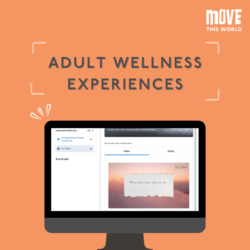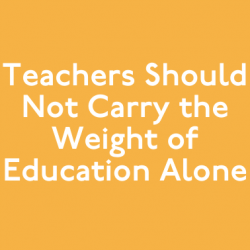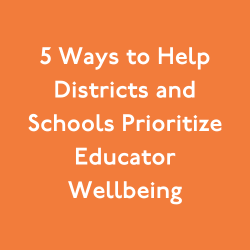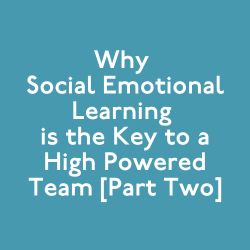Tough conversations are unavoidable. As adults and inherently social human beings, opportunities for meaningful and complex dialogue present themselves in our daily lives almost constantly.
During staff meetings, in our classrooms, at the grocery store, during group-work, at the gym, or in the coffee shop – we are consistently presented with opportunities to communicate. What starts as a pleasant conversation can quickly transform into a disagreement or a conflict, transforming our interaction into a “difficult” conversation. Sometimes we don’t even see them coming before they start.
That’s why possessing the skills necessary to effectively handle difficult conversations is critical to our livelihood and directly impacts our social and emotional wellbeing.
The reality is that we live in a diverse society filled with contrasting beliefs, different life-experiences, and conflicting views. We all make mistakes and we all have disagreements – it’s up to us to equip ourselves with the knowledge to handle difficult conversations before they arise so that negative outcomes can be avoided and effective communication can occur.
It’s important to recognize that a conversation can still be productive even if you’re unable to come to a complete agreement.
Possess an Open Mind and an Open Heart
When entering a difficult conversation, especially one with opposing views, it’s critical to the outcome of the conversation that we open ourselves up to hearing things that we don’t necessarily agree with. This does not mean that we must agree with everything others are saying, but it does mean that we have to be mindful of our individual biases. If you feel strongly in your opinion, that’s okay, but it is not okay to let these beliefs stop us from engaging in critical and effective discussion. Accepting and welcoming diverse perspectives can push you to a space of reflection and personal growth, without requiring that you shift your opinion.
Be Willing To Actively Listen
It can become easy to tune out tough parts of a conversation or to even zone-out if we feel ourselves losing interest in what the other is saying. These things happen; however, the aftereffect of not being able to maintain full awareness during difficult conversations can make itself known in very negative ways. If you feel yourself drifting during a discussion, try mentally repeating the words of your counterpart in your head. Learn to avoid distractions; if your environment is too noisy, don’t be afraid to move the conversation elsewhere. Maintain open body language to show your willingness to participate. Lastly, challenge yourself to provide feedback or ask clarifying questions during lulls in conversation – this will further demonstrate that you are actively listening.
Dive Into Sensitive Topics
Discussing sensitive topics is usually challenging for everyone involved. For some of us, we find ourselves participating in these conversations because of the demands of our job. Educators may have a hard time engaging in certain topics with parents or even breaching certain subjects with their students. It’s important to set boundaries in difficult conversations; understand what you’re comfortable with discussing and what you are not comfortable discussing. Your counterpart may not recognize your discomfort, so don’t be afraid to calmly state: “I respect your view, but this conversation is uncomfortable. Could we change the subject or pick this up at another time?” Identify social conversations and the purpose of the discussions to keep them as focused as possible. For subject matter that is unavoidable, find simple and non-threatening ways to approach these topics; if possible, do research beforehand and commit yourself to learning the appropriate terms relevant to these discussions.
Exit Conversations Mindfully
Exiting our conversations mindfully allows us to end things on a positive note, and it also encourages us to reflect on the conversation that was had. This is essential to all meaningful conversations, but especially to the difficult ones. Some ways we can exit difficult conversations mindfully is by thanking our counterpart for the insightful discussion, ending things on a more positive tone by commenting on what you’ve learned or intend to learn, closing the conversation with mindful breaths, offering a follow-up if necessary, and scheduling personal reflection-time post conversation.
A Final Takeaway
If you know certain conversations are unavoidable, don’t be afraid to do the necessary research to be able to handle these discussions beforehand. It is our duty as responsible adults to ensure that we are able to tackle difficult conversations and resolve conflict effectively – our social and emotional wellbeing depends on it.
Sign up for Move This World’s newsletter to stay up to date on social emotional learning and how to identify social conversations.
Enter your email below










